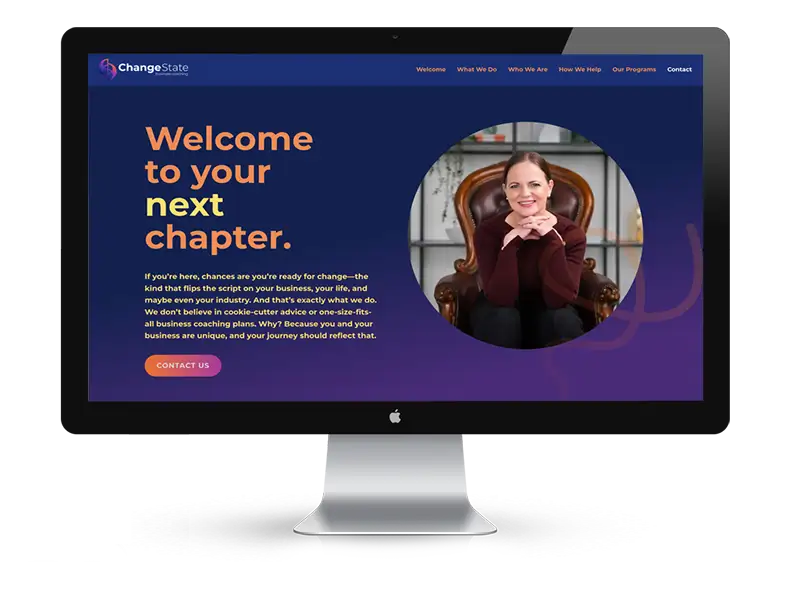Organic SEO Services
Auckland Wide
What is SEO?
SEO or Search Engine Optimisation is the process of driving visitors to a website. Our Organic SEO services help businesses improve their organic search rankings by getting more visits and extending how long visitors stay on your site.
What is search ranking?
When a person types in a question to a search engine like Google, Google presents a Search Engine Results Page or SERP. The page has a list of options that are the best fit for the question asked. At the top, there are ‘sponsored’ results. These are generated from Google ads. The rest are ‘organic’.


Organic search results
Or “natural” search results are web page listings that most closely match the search query. The ability to match the query depends on whether your site is answering the right questions by having the right content. It also depends on whether your site is deemed an authority or not.

Sponsored search results
Sponsored or paid search results are advertisements. Website owners have paid to have their web pages display for certain keywords. Depending on the keywords, ads can be expensive and not always a great return on investment. This is SEM or Search Engine Marketing.

The benefit of organic SEO vs paid ads
If paid ads are not sustainable, they can be switched off, and visitor numbers can plummet. That’s why ranking high in the organic results is so important; it doesn’t end if you stop paying for ads. Organic SEO is consistent 1% changes that you can do yourself.
Do you need help with organic SEO?
If you’re unsure whether you need to improve your SEO, we can audit your website for you.
Factors in our process of good organic SEO
Organic SEO requirements are constantly changing; at Woodswork Web, we make recommendations based on the most recent practices.
1.
Keyword Research
We analyse and research to check that the correct keywords are in use and make sure they fit good search criteria.
A keyword can be one word or a phrase. Most keywords are actually three to five-word phrases and are referred to as “long-tail keywords”. They’re more specific and usually less competitive. Long-tail keywords are used to target niche demographics rather than mass audiences and will often get the highest conversion rate.
2.
Location Specific Keywords
Or location-based keywords for your target marketing area may suit your business. If you’re a brick and mortar business, we’ll most likely use these.
If you’re based in and area that you prefer to work within, we’ll most likely use these terms in our keywords.
Keywords for your target marketing area may suit your business.
3.
Metadata
Keywords are added throughout your website, both where you can see them and also in places you may not notice.
We add keywords in the metadata and in the assets such as images.
The more keyword opportunities a site has, the easier it is to find. This is why we recommend a seven-page website build minimum. It provides visitors and search engines with seven opportunities to find you.
4.
Image Optimisation
All images are saved to the smallest possible size to ensure they are fast to load.
This is particularly important on mobile. We recommend adding images sized specifically for mobile in some cases.
5.
Internal Linking Strategy
When your website receives a link to the homepage, some of the link value is passed on to internal pages. This is often referred to as ‘link juice’.
Search engines share link value between all links on a web page. If Page 1 then links to Page 2, the ‘link juice’ flows from Page 1 to Page 2, helping it rank higher in the search engine results page (SERP). Create a strong internal linking strategy to help boost your SEO.
6.
Regular Quality Content
We create useful, information-rich pages that clearly and accurately describe what it is you do and the services you offer.
It’s recommended to add fresh content regularly and take the time to link your content.
7.
Heading Hierarchy
Often overlooked hierarchy is an essential factor in search engine page readability.
As text is added to pages, it’s required to follow the rules of a logical structure. Headings and text are added in sequential order, and if this isn’t correct, the Accessibility scores will be impacted.
8.
SEO Plugins
These help content creators to check that the text works well for search engines and also for humans.
They will advise if the content is not at the required levels for the number of words, keyword to words ratio, passive language etc.
What we do to help organic SEO
If your site needs work, based on our audit, we outline a strategy to address the issues over time.

Poor speed kills web traffic
If your site speed is poor, that’s the first issue we fix by optimising images and working on performance.

Keyword distribution & metadata
The page content is tweaked to ensure the content passes SEO best practice requirements.

Technical SEO issues
Metrics testing will supply information regarding the areas of concern. We address high-impact issues as the priority.
And YES! We can help with AI visibility.
Does your site need organic SEO?
Absolutely. All websites do. Even if you have paid advertising organic SEO is vital.
Regular, ongoing SEO strategy helps you maintain and improve your position in the page rankings, ensuring you are consistently seen by potential customers. Organic SEO is a long-term strategy: the more time and quality content, the greater the results.
Don’t take our word for it.
★★★★★
“We have just launched a new website designed by Woodswork.
Our new website is fresh and modern, which is exactly what we asked for. Clare and her team were wonderful to work with, always responsive and patient, regardless of how challenging we were.
Good news is our sales have increased markedly thanks to the new online shop.”
Eco Trap NZ